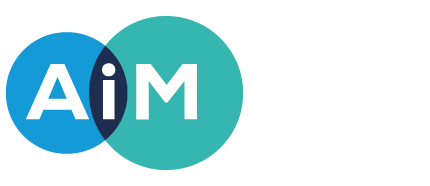Stay in touch with the latest news from AIM and get information on sector grants, jobs and events with our free fortnightly E-News.
The Royal West of England Academy: Innovation
The Royal West of England Academy was funded by an AIM Hallmarks Award to develop a new corporate training offer, giving clients the opportunity to spend a day working with artists, as an alternative to the existing ‘team building’ activities market.
The Creative Thinking, Creative Working project responded to the Innovation Hallmark and was designed to create revenue by tapping into a new market for the museum, the UK’s only regional Royal Academy of Art, but it also offered the opportunity to work in new ways, with new partners, and to see the value of what the museum has to offer through a different lens.
RWA collaborated on the project with training company Open Limits, who have developed a niche for using performance and creative activity as part of training programmes for people in business.
“There are lots of companies who work with theatre professionals on learning and development but no one doing it with artists as far as we know,” says Kate Foster, Head of Development for RWA. “But we thought there was a way in which artists think and work differently that could be of benefit to the business community. Artists approach their work differently and there are lots of issues they face around, for example, creative block, when is ‘good’ good enough, and being happy to fail that we thought were also a challenge in business life and so were something we might be able to help with.”
The training takes the form of workshops in which participants work with an academician on a task designed to stretch their creative thinking skills.
“We ran one workshop with the artist Lucy Austin in which people worked in teams to build a drawing machine which makes marks, using all sorts of stationery and office products – pencils, staplers, Sellotape. It’s a project that quickly builds the team-spirit – they can be people from the same or different companies – and what they find is that, through this process, they can quickly work together as a team and find new levels of communication and personal honesty, even if they are quite nervous to start with.”
The workshop is followed by a detailed feedback session with Open Limits, reflecting on the process and what people have learned from it and how it might change their behaviour in future.
“It very much takes people out of their comfort zone and you do see people get quite agitated by it but with Lucy’s sympathetic and supportive approach, they were willing to give it a go. They then discover they can do things outside their comfort zone.
“Many of the participants so far have been from IT and general technology industries, the Chartered Institute of Public Relations and places like Henley business School. They said that enjoyed, in particular, the opportunity for peer-to-peer exchange with the RWA academicians, who they recognised were professionals in their own right.”
The programme also creates an opportunity for RWA to show its collection to a wider audience as participants have the chance to see the exhibits and discuss issues, common to creative and business enterprises, around knowledge management or legacy.
RWA now plan to roll out the pilot to the wider business market as a paid-for service and also offer it as a model for other creative institutions potentially to adopt.
Kate says: “We feel we have the product right now. The Hallmarks grant gave us the opportunity to try it out and fine tune it and generally took the risk out of it, but it also forced us to consider carefully whether it was the right fit for us. Did it align with our mission, objectives and remit as an academy? The answer is yes, it does – because it’s very much an extension of what we do already and we weren’t drifting into it simply to make money.”
